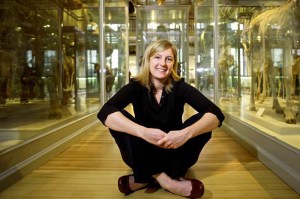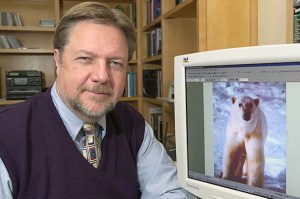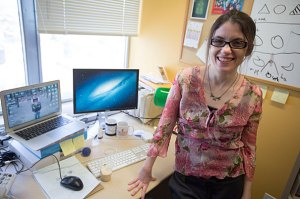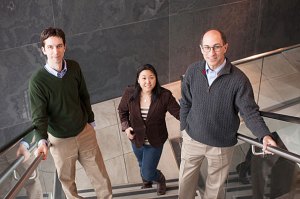Tag: Peter Reuell
-
Science & Tech
Efficiency in the forest
Spurred by increasing levels of atmospheric carbon dioxide, forests over the past two decades have become dramatically more efficient in how they use water, a Harvard study has found.
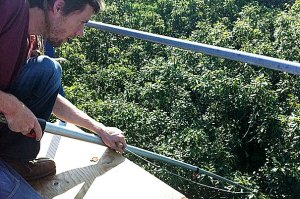
-
Campus & Community
Watching Spanish grow
The Instituto Cervantes Observatory of the Spanish Language and Hispanic Cultures in the United States at the Faculty of Arts and Sciences of Harvard University will be a center for tracking Spanish language growth.
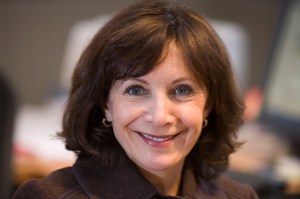
-
Science & Tech
Right down the middle, explained
The ability to throw an object with great speed and accuracy is a uniquely human adaptation, one that Harvard researchers say played a key role in our evolution.

-
Science & Tech
Map to renewable energy?
Researchers hoping to make the next breakthrough in renewable energy now have plenty of new avenues to explore — Harvard researchers this week released a database of more than 2 million molecules that might be useful in the construction of organic solar cells for the production of renewable energy.

-
Science & Tech
Reputation as a lever
Using enrollment in a California blackout prevention program as an experimental test bed, a team of researchers showed that although financial incentives boosted participation slightly, making participation in the program observable produced a threefold increase in sign-ups.
-
Health
Learning through doing
As part of Professor Gonzalo Giribet’s Biology of Invertebrates class, students make closely observed, highly detailed sketches of animals they study in the lab.
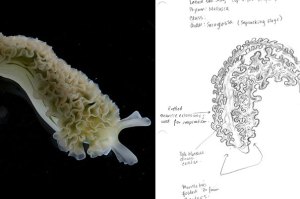
-
Health
Mouthful of clues
Harvard researchers have demonstrated that the levels of barium in teeth correspond with breast-feeding. Importantly, they said, the barium levels can remain in fossils that are thousands of years old. This provides new opportunities to study breast-feeding behavior among Neanderthals and early humans.
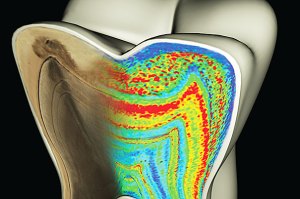
-
Campus & Community
He made the most of his opportunities
A biomedical engineering concentrator and Quincy House resident, Scott Yim’s senior project explored using naturally derived materials such as bamboo to help reduce the cost of medical devices and biomaterials in the developing world.

-
Campus & Community
Five named College Professors
Five faculty members have been awarded Harvard College Professorships: Joseph D. Harris, Steven R. Levitsky, Michael Puett, Jennifer L. Roberts, and Maryellen Ruvolo. The Harvard College Professorships are five-year appointments. They provide faculty with extra support for research or scholarly activities and a semester of paid leave or a summer salary.
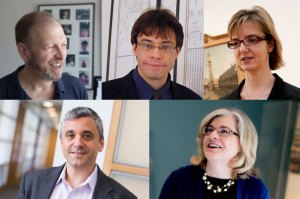
-
Campus & Community
New investigators named
Adam Cohen, professor of chemistry and chemical biology and of physics, and Hopi Hoekstra, professor of organismic and evolutionary biology and molecular and cellular biology, are among the 27 scientists nationwide to be appointed as investigators by the Howard Hughes Medical Institute.
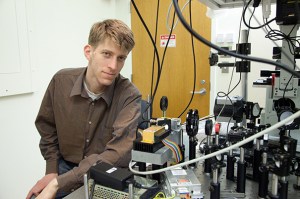
-
Campus & Community
Style and substance
The culmination of the Harvard Horizons initiative was a symposium in which eight Ph.D. students each offered five-minute presentations, styled on the popular TED talks, about a specific aspect of their current research.
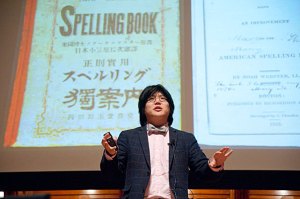
-
Health
‘Brainbow,’ version 2.0
Led by Joshua Sanes and Jeff Lichtman, a group of Harvard researchers has made a host of technical improvements in the “Brainbow” imaging technique.
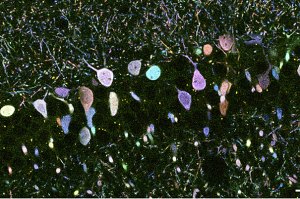
-
Health
Mourning that vexes the future
In a new paper, Professor of Psychology Richard McNally and graduate student Don Robinaugh say that while people suffering from complicated grief — a syndrome marked by intense, debilitating emotional distress and yearning for a lost loved one — had difficulty envisioning specific events in their future, those problems disappeared when they were asked to…
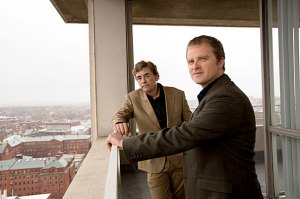
-
Health
Lower health care costs may last
A slowdown in the growth of U.S. health care costs could mean a savings of as much as $770 billion on Medicare spending over the next decade, Harvard economists say.
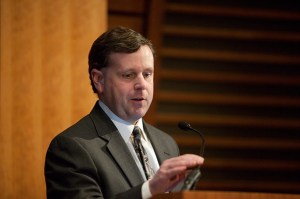
-
Science & Tech
Projectile learning
Students in Matthew Liebmann’s “Encountering the Conquistadors” class recently got a feel for prehistoric life, trying their hands at an ancient weapon called the atlatl.
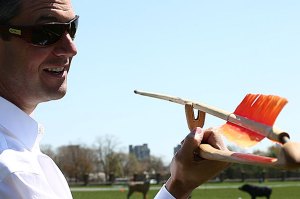
-
Science & Tech
Understanding student weaknesses
As part of an unusual study that surveyed 181 middle school physical science teachers and nearly 10,000 students, researchers found that the most successful teachers were those who knew what students would get wrong on standardized tests.
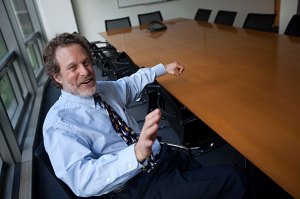
-
Science & Tech
Seeking fairness in ads
Latanya Sweeney, Harvard professor of government and technology in residence, wants to add a new factor to the weighting Google uses when delivering online ads, one that measures bias. In a new paper, she describes how such a calculation could be built into the ad-delivery algorithm Google uses.
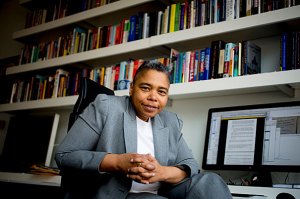
-
Campus & Community
Raj Chetty awarded Clark Medal
Harvard Professor of Economics Raj Chetty has been awarded the 2013 John Bates Clark Medal in recognition of his work, which combines empirical evidence and theory to inform the design of more effective government policies on everything from taxation to unemployment to education.
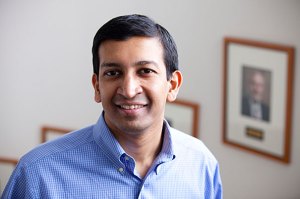
-
Health
The motivation to move
Using an unusual decision-making study, Harvard researchers exploring the question of motivation found that rats will perform a task faster or slower depending on the size of the benefit they receive, suggesting they maintain a long-term estimate of whether it’s worthwhile for them to invest the energy.
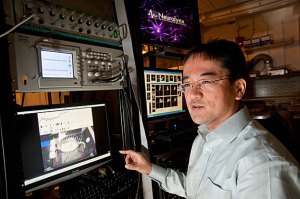
-
Science & Tech
Warmth across 600 years
Harvard researchers are adding nuance to our understanding of how modern and historical temperatures compare.
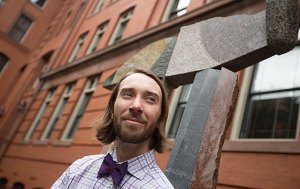
-
Science & Tech
Fine-tuning online education
Andrew Ho, research director of HarvardX and an assistant professor at the Harvard Graduate School of Education, spoke with the Gazette about a recent study that found that interspersing online lectures with short tests improved student performance.
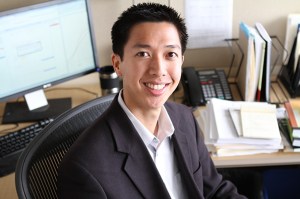
-
Science & Tech
Online learning: It’s different
By interspersing online lectures with short tests, student mind-wandering decreased by half, note-taking tripled, and overall retention of the material improved, said Daniel Schacter, the William R. Kenan Jr. Professor of Psychology, and Karl Szpunar, a postdoctoral fellow in psychology.
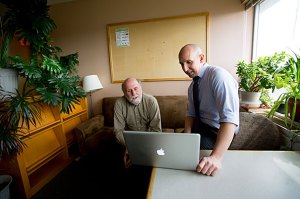
-
Science & Tech
Evolutionary oomph
Scientists may soon be able to turn to one of the most powerful forces in biology — evolution — to help in their quest to develop new synthetic polymers.
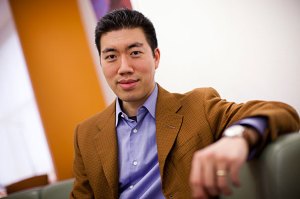
-
Campus & Community
A look inside the lab
The Faculty of Arts and Sciences’ Division of Science recently relaunched its “Science Research Lecture Series,” aimed at introducing the broader local community to research conducted by Harvard faculty members. The talks will be held once a month in the Science Center, and will be open to the public.
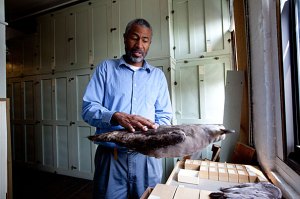
-
Science & Tech
Sharper view of matter
In a breakthrough that could one day yield important clues about the nature of matter itself, a team of Harvard scientists has measured the magnetic charge of single particles of matter and antimatter with unprecedented precision.
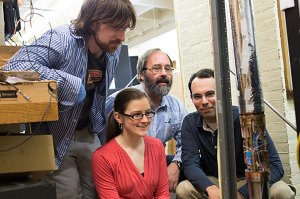
-
Health
When timing is everything
In a new paper, Christopher Marx, associate professor of organismic and evolutionary biology, says that beneficial mutations may occur more often than first thought, but many never emerge as “winners” because they don’t fall within the narrow set of circumstances required for them to dominate a population.
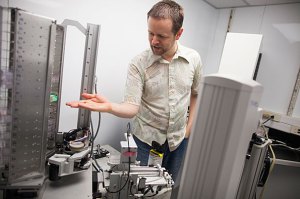
-
Health
One gene, many mutations
In a new paper, Harvard researchers show that changes in coat color in mice are the result not of a single mutation, but of many mutations, all in a single gene. The results start to answer one of the fundamental questions about evolution: Does it proceed by huge leaps — single mutations that result in…
